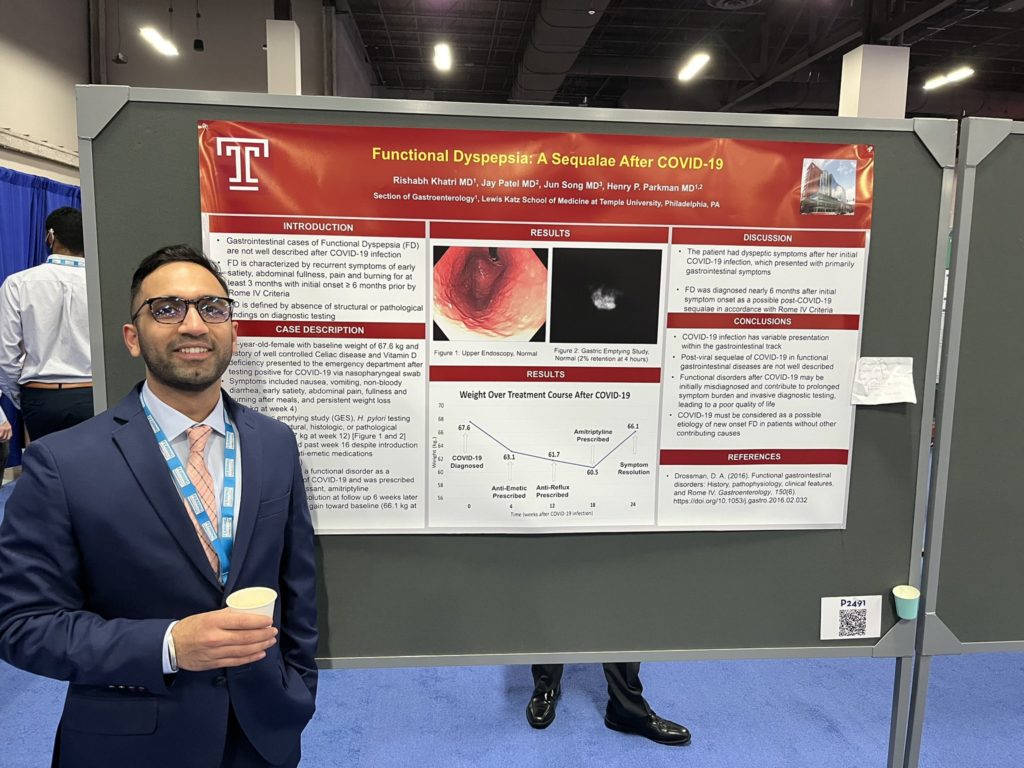Rishabh’s Project
FRESH FOOD FARMACY: PRESCRIPTION FOR HEALTH AND WELLNESS AT TEMPLE MEDICINE
Fund for the Future of Our Children Supports Fresh Food “Farmacy” in Philadelphia

Dr. Rishabh Khatri first connected with the Fund for the Future of Our Children (FFC) as a 2009-2010 Essay Contest Participant when he was a high school student in Maryland. Fluent in Hindi and Punjabi, he was active in promoting cultural and ethnic diversity from a young age. In 2010, with support from FFC, he assisted rebuilding efforts in Haiti after a massive earthquake devastated the Caribbean nation.
He helped to develop a fully independent health clinic in the rural Haitian town of Camp Coq. It continues to serve as a primary care medical hub for surrounding elementary schools. The clinic not only delivers accessible health care, but also provides adults with jobs in the medical field and educates young people about health lifestyles.
A commitment to health equity still drives his work to this day. He fulfilled his goal of becoming a doctor, graduating from the Virginia Commonwealth University School of Medicine. Dr. Khatri is currently serving as a medical resident at Temple University Hospital in Philadelphia, Pennsylvania.
Philadelphia is home to some of the world’s leading hospitals, with state-of-the-art medical facilities and a long history of health innovation. Within 10 square miles, there are more than 10 major hospital systems serving residents. Still, troubling inequities continue to persist.
Some residents of Philadelphia have limited access to the most basic medical care. According to the Philadelphia Department of Health, some areas of the city have just one primary-care provider for every 3,500 residents–this is well below the national average, and defined as a “shortage area.” Without access to regular care and timely screenings, people from these neighborhoods are more likely to suffer from preventable diseases.
While direct medical care is vital, it is only one piece to promoting overall wellness in a community. For example, a key element of physical health is having access to high-quality, nutritious food. This has long been a challenge for many Philadelphians, but it has been greatly exacerbated by the COVID-19 pandemic. It is now estimated that 40% of the city’s households are “food insecure”–meaning that they struggle to have enough food to thrive.
To address this issue, Dr. Khatri has launched a new fresh food “farmacy”. The concept is that good food is a most important form of medicine. The program combats nutritional insecurity, promotes disease prevention, and fosters health literacy. To serve the holistic wellness of patients, his work is going beyond the doctor’s office.
With the support of FFC, Dr. Khatri’s new program is allowing patients to pick up a prepackaged box of produce, immediately after their appointment at the clinic. The food comes from Farm to Family (F2F), a cost-subsidized community-supported agriculture program. Each box contains seasonal fruits and vegetables, and often includes eggs and meats. FFC’s investment is making the food available at no cost to participants.
Boxes are picked up at the Temple Internal Medicine Associates clinic. Medical students from Lewis Katz School of Medicine (Temple University’s medical school) help recruit patients in the waiting area, supervise distribution of produce, and conduct weekly surveys to assess satisfaction of the patients. The involvement of medical students provides additional support to patients, and also provides valuable training to the next generation of medical professionals about how to understand and overcome barriers to care.
The program launched in late 2021 and is already having a major impact. Through the holiday season, the clinic was able to provide boxes to about 60 families. It also established a food pantry at the nearby Zion Baptist Church, which allows patients and community members to receive food outside of the clinic’s business hours. This component has given food to 15 families so far.
This entire initiative is focused on promoting equity by reducing obstacles to essential nutrition resources and subsequently improving community health. Going forward, the program will curate recipes with nutritionists that are based around the seasonal produce being offered. These will also be compiled into a cookbook which will be accessible to all members. The long-term goal is to develop cooking classes and food-based informational sessions for the participating community about healthy eating and disease prevention.
FFC is proud to have collaborated with Dr. Rishabh Khatri for over ten years and counting. He is a tireless advocate for his patients and the broader community. It is inspiring to see how he has continually used his passion and calling to serve humanity.
